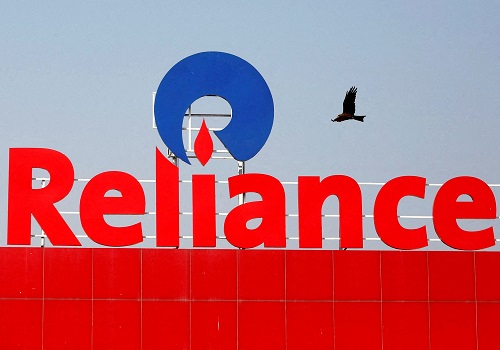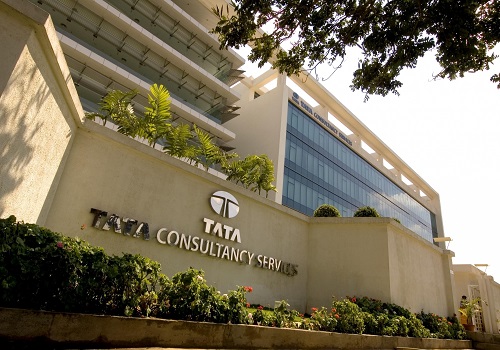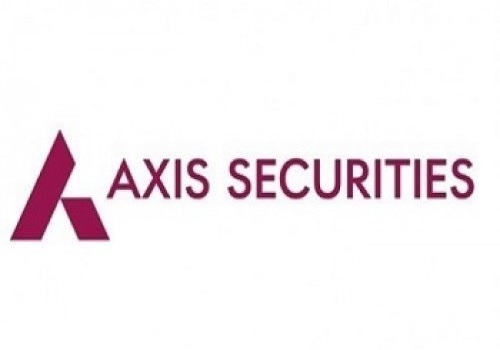Key indices snap two-day winning run on Friday
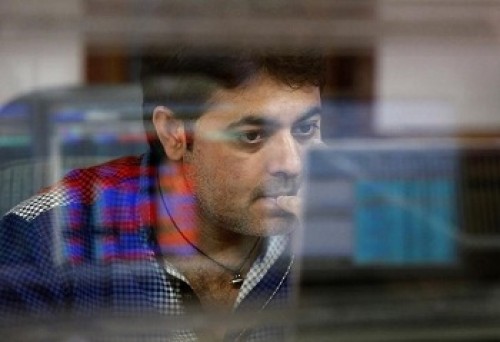
Follow us Now on Telegram ! Get daily 10 - 12 important updates on Business, Finance and Investment. Join our Telegram Channel
https://t.me/InvestmentGuruIndiacom
Download Telegram App before Joining the Channel
Indian equity benchmarks snapped a two-day winning streak and ended over a percent lower on Friday, dragged by losses across most sectors, especially Energy, Banking and FMCG shares amid uncertainty surrounding the Omicron variant. Markets started trade on a positive note, as traders took some support with the Centre for Monitoring Indian Economy’s statement that the index of consumer sentiment for rural India inched up by 0.3% for the week ended November 28 while the index for consumer expectation went up by 1.3%, a much lower jump compared to weeks before the announcement of the repeal of farm laws. Some solace also came after a private survey showed activity in India's dominant services sector continued to grow at a robust pace in November 2021 supported by a strong recovery in domestic demand, but elevated price pressures remained a major concern. The Services Purchasing Managers' Index, compiled by IHS Markit, eased to 58.1 in November from 58.4 in October, but November’s rate of growth was the second-best in over a decade and well above the 50-mark separating growth from contraction for a fourth straight month.
However, frontline indices quickly reversed their gains and slipped into red terrain in afternoon deals, as traders turned cautious with private report increased its current account deficit (CAD) forecast to 1.9 per cent of GDP at $60 billion for 2021-22 as compared to $45 billion earlier, following the record $23.27 billion trade deficit in November. It said trade deficit -- the difference between a country's imports and exports -- has been rising and remains sticky, driven by weaker exports, surging domestic activity and higher commodity prices. Sentiments also remained dampened after a private report highlighted a curious case of increase in aggregate bank deposits followed by subsequent slump in alternate fortnights, which is quite a contrarian trend. As per the provisional data released by RBI for the fortnight ended 19 November 2021, all scheduled commercial banks' (ASCB) aggregate deposits have slumped by Rs 2.7 lakh crore during the fortnight. This slump in deposits follows an abrupt increase by Rs 3.3 lakh crore during the previous fortnight ended 5 November 2021.
On the global front, Asian markets settled mostly higher on Friday amid hopes that the Omicron Covid-19 variant would prove to be milder than previous strains and existing vaccines can hold up against it. Some support also came after the latest survey from Caixin showed the services sector in China continued to expand in November, albeit at a slower pace with a PMI score of 52.1, down from 53.8 in October. Though the upside remained limited ahead of U.S. payrolls data due out later in the day that could clear the path for an earlier rate hike by the Federal Reserve. European markets were trading lower on worries over inflation and the potential impact of the newly detected coronavirus variant. Back home, on the sectoral front, aviation industry stocks were in limelight as International Air Transport Association said the sudden emergence of Covid-19's Omicron variant may force countries to re-impose extensive travel restrictions. Stocks related to Telecom sector were in watch as Telecom Secretary K Rajaraman said spectrum auctions for the 5G services are expected to be held early next year. The Telecom Regulatory Authority of India (Trai) has floated a consultation paper for the spectrum price for the proposed auction that is expected to pave the way for 5G services.
Finally, the BSE Sensex fell 764.83 points or 1.31% to 57,696.46 and the CNX Nifty was down by 204.95 points or 1.18% to 17,196.70.
The BSE Sensex touched high and low of 58,757.09 and 57,640.57, respectively and there were 4 stocks advancing against 26 stocks declining on the index.
The broader indices ended mixed; the BSE Mid cap index fell 0.01%, while Small cap index was up by 0.33%.
The top gaining sectoral indices on the BSE were Capital Goods up by 0.76%, Industrials up by 0.30% and Basic Materials up by 0.22%, while Energy down by 2.30%, Bankex down by 1.00%, FMCG down by 1.00%, Finance down by 0.93% and Healthcare down by 0.79% were the top losing indices on BSE.
The top gainers on the Sensex were Larsen & Toubro up by 0.72%, Indusind Bank up by 0.61%, Tata Steel up by 0.47% and Ultratech Cement up by 0.35%. On the flip side, Power Grid Corp down by 4.03%, Reliance Industries down by 3.05%, Kotak Mahindra Bank down by 2.58%, Asian Paints down by 2.29% and Bharti Airtel down by 1.88% were the top losers.
Meanwhile, Indian service sector continued to strengthen, with a substantial upturn in new orders underpinning output growth. The Services Purchasing Managers' Index, compiled by IHS Markit, eased to 58.1 in November from 58.4 in October, but last month's rate of growth was the second-best in over a decade and well above the 50-mark separating growth from contraction for a fourth straight month. Input costs rose at the second-strongest pace in close to ten years, while the rate of charge inflation softened from October's recent high.
Amid reports of higher fuel, labour, material, retail and transportation costs, average input prices among Indian services companies rose further in November. The overall rate of inflation quickened from October and was the second-strongest in almost a decade, behind April. The report also said few firms transferred higher input costs through to their clients by lifting selling prices, the vast majority kept their fees unchanged from October. As a result, output charges rose at a moderate rate that was slower than in the prior month.
Private sector activity in India continued to expand, taking the current sequence of growth to four months. Moreover, the Composite PMI Output Index signalled the strongest upturn since January 2012, rising from 58.7 in October to 59.2. Robust increases in activity were seen in the manufacturing and service sectors, with growth led by the former. Aggregate new business rose for the fourth month in succession and at the fastest pace in almost ten years.
The pick-up in growth stemmed from the manufacturing industry, as sales among service providers increased at a pace that was little changed from October. The combined rate of input cost inflation matched that seen in October, and was therefore the joint-highest in close to nine and-a-half years. Manufacturing firms recorded a stronger increase than their services counterparts. Concerns over inflationary pressures dampened optimism among Indian private sector companies.
The CNX Nifty traded in a range of 17,489.80 and 17,180.80 and there were 12 stocks advancing against 28 stocks declining on the index.
The top gainers on Nifty were UPL up by 2.12%, BPCL up by 1.89 %, Indian Oil Corporation up by 1.45%, ONGC up by 1.25% and Indusind Bank up by 0.75%. On the flip side, Power Grid Corp down by 4.06%, Reliance Industries down by 2.81%, Kotak Mahindra Bank down by 2.55%, Asian Paints down by 2.06% and HDFC Life Insurance Company down by 2.03% were the top losers.
European markets were trading lower; UK’s FTSE 100 decreased 0.63 points or 0.01% to 7,128.58, France’s CAC decreased 9.46 points or 0.14% to 6,786.29 and Germany’s DAX decreased 28.20 points or 0.18% to 15,234.91.
Asian markets settled mostly higher on Friday, tracking gains in Wall Street overnight as the US President Joe Biden's administration unveiled its plan for battling Covid-19 this winter, and on expectations that the Omicron variant of Covid-19 would prove to be milder than previous strains. Seoul shares gained as health authorities strengthened virus curbs to contain the spread of the Omicron virus variant. Japanese shares rose as the yen weakened, while a survey showed the services sector in the country expanded at a faster pace in more than two years in November on a jump in new business, signalling stronger consumer confidence as the corona-virus pandemic subsided. Chinese shares improved after the latest survey from Caixin showed the services sector in the country continued to expand in November, albeit at a slower pace with a PMI score of 52.1, down from 53.8 in October.
Above views are of the author and not of the website kindly read disclaimer





 signs MOU with Marriot Group of Hotels.jpg)
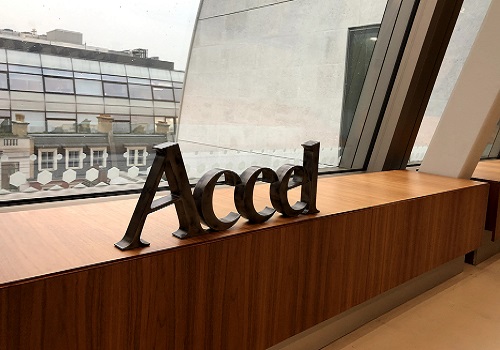



Tag News

Weekly Market Analysis : Markets strengthened recovery and gained nearly 2% in the passing w...





